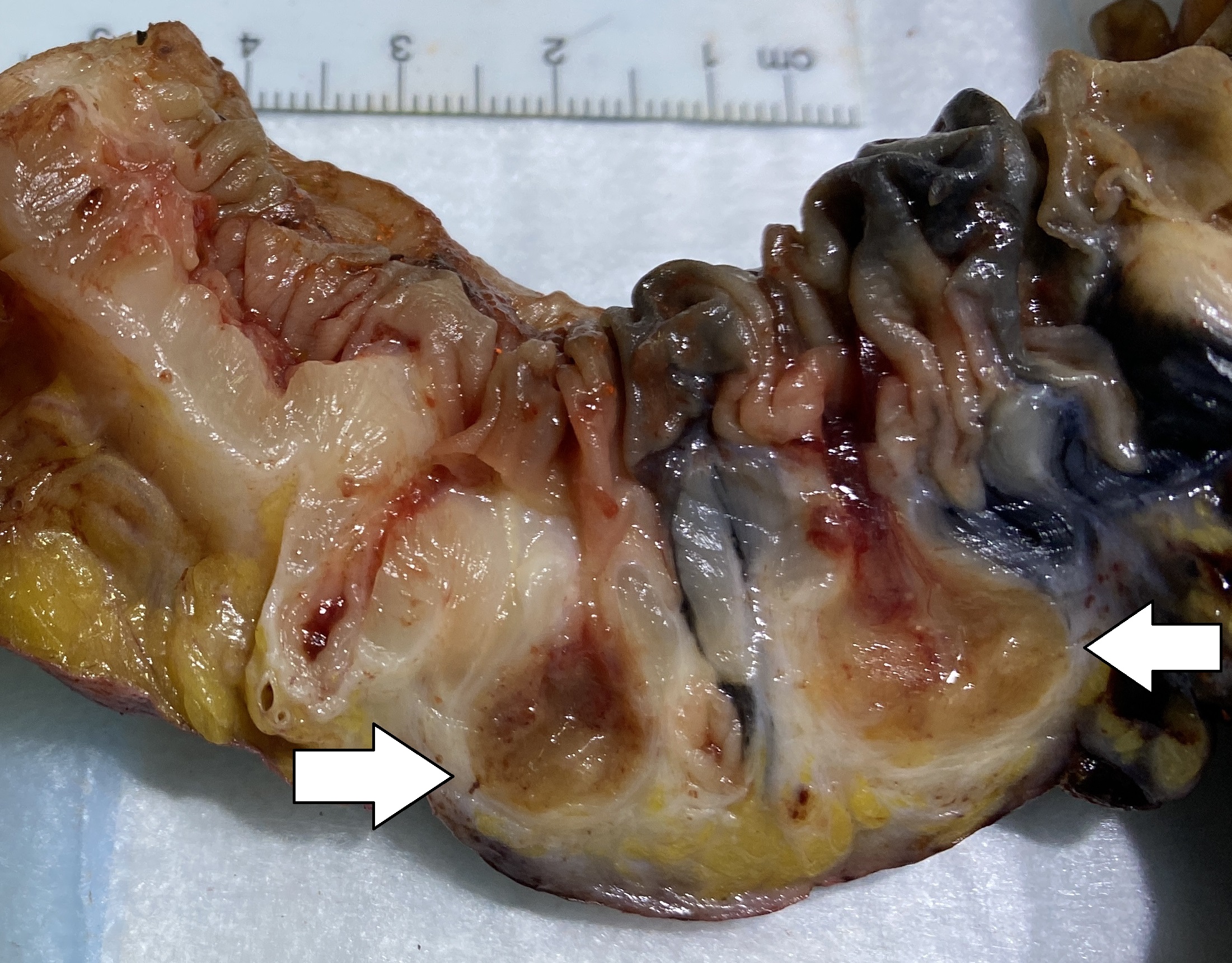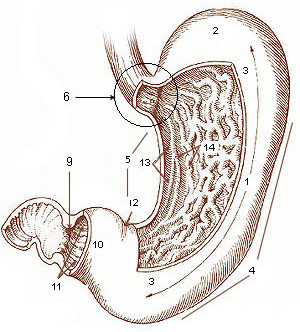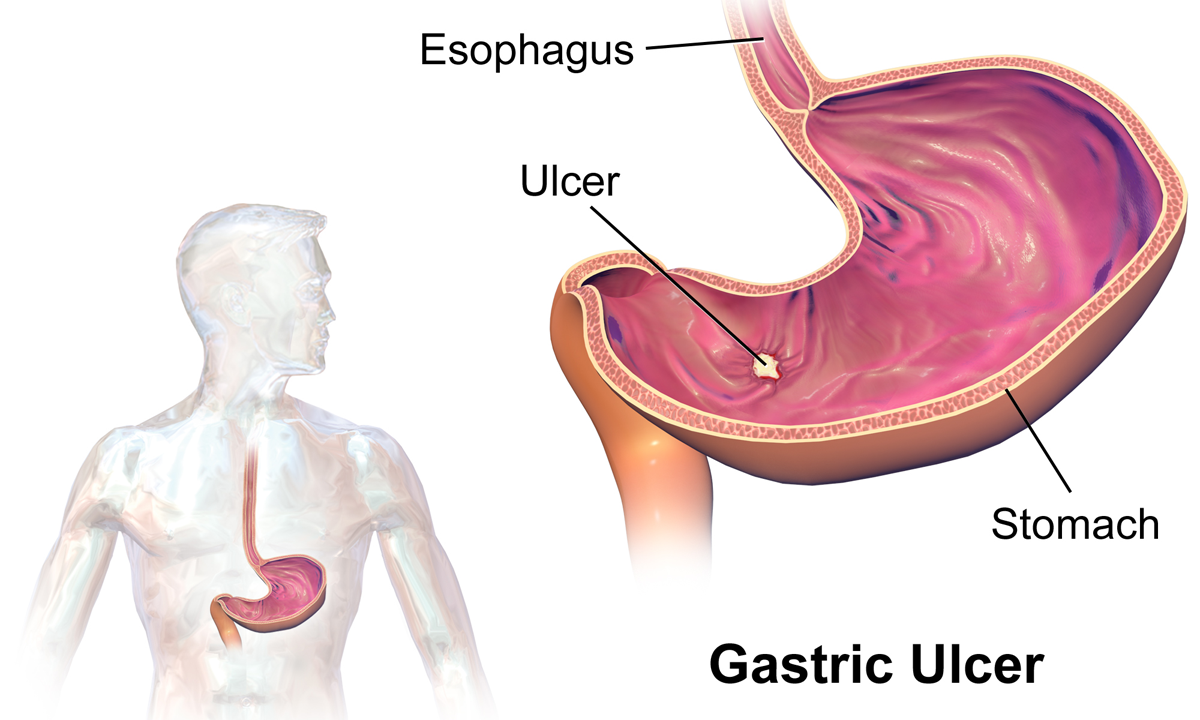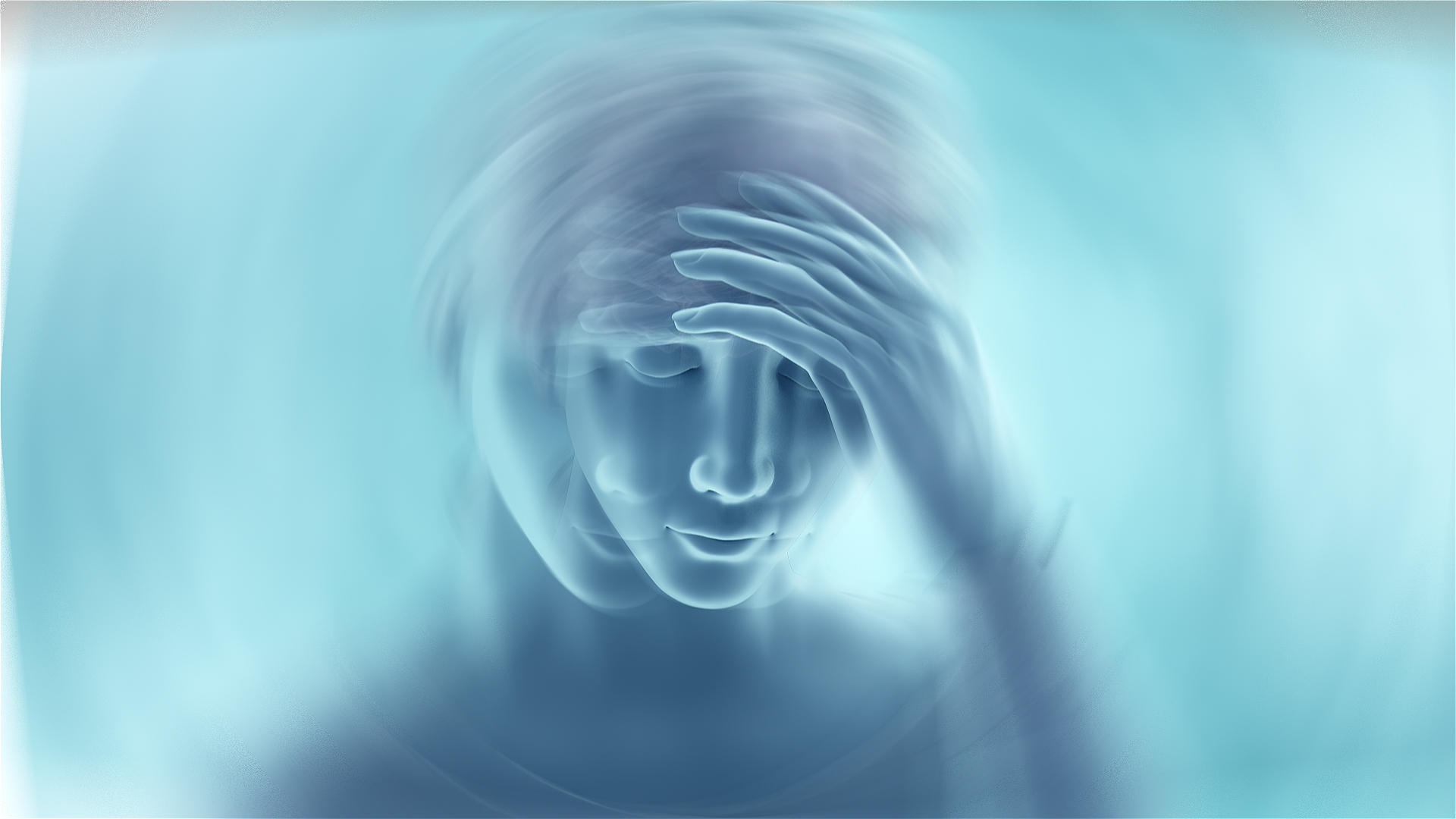|
Anticholinergic Agent
Anticholinergics (anticholinergic agents) are substances that block the action of the neurotransmitter called acetylcholine (ACh) at synapses in the central and peripheral nervous system. These agents inhibit the parasympathetic nervous system by selectively blocking the binding of ACh to its receptor in nerve cells. The nerve fibers of the parasympathetic system are responsible for the involuntary movement of smooth muscles present in the gastrointestinal tract, urinary tract, lungs, sweat glands, and many other parts of the body. In broad terms, anticholinergics are divided into two categories in accordance with their specific targets in the central and peripheral nervous system and at the neuromuscular junction: antimuscarinic agents, and antinicotinic agents ( ganglionic blockers, neuromuscular blockers). The term "anticholinergic" is typically used to refer to antimuscarinics which competitively inhibit the binding of ACh to muscarinic acetylcholine receptors; such agents ... [...More Info...] [...Related Items...] OR: [Wikipedia] [Google] [Baidu] |
Neurotransmitter
A neurotransmitter is a signaling molecule secreted by a neuron to affect another cell across a synapse. The cell receiving the signal, any main body part or target cell, may be another neuron, but could also be a gland or muscle cell. Neurotransmitters are released from synaptic vesicles into the synaptic cleft where they are able to interact with neurotransmitter receptors on the target cell. The neurotransmitter's effect on the target cell is determined by the receptor it binds. Many neurotransmitters are synthesized from simple and plentiful precursors such as amino acids, which are readily available and often require a small number of biosynthetic steps for conversion. Neurotransmitters are essential to the function of complex neural systems. The exact number of unique neurotransmitters in humans is unknown, but more than 100 have been identified. Common neurotransmitters include glutamate, GABA, acetylcholine, glycine and norepinephrine. Mechanism and cycle ... [...More Info...] [...Related Items...] OR: [Wikipedia] [Google] [Baidu] |
Muscarinic Acetylcholine Receptor
Muscarinic acetylcholine receptors, or mAChRs, are acetylcholine receptors that form G protein-coupled receptor, G protein-coupled receptor complexes in the cell membranes of certain neurons and other Cell (biology), cells. They play several roles, including acting as the main end-receptor stimulated by acetylcholine released from postganglionic fibers in the parasympathetic nervous system. Muscarinic receptors are so named because they are more sensitive to muscarine than to nicotine. Their counterparts are nicotinic acetylcholine receptors (nAChRs), receptor ion channels that are also important in the autonomic nervous system. Many drugs and other substances (for example pilocarpine and Hyoscine hydrobromide, scopolamine) manipulate these two distinct receptors by acting as selective agonists or receptor antagonist, antagonists. Function acetylcholine, Acetylcholine (ACh) is a neurotransmitter found in the brain, neuromuscular junctions and the autonomic ganglia. Muscarini ... [...More Info...] [...Related Items...] OR: [Wikipedia] [Google] [Baidu] |
Nausea
Nausea is a diffuse sensation of unease and discomfort, sometimes perceived as an urge to vomit. While not painful, it can be a debilitating symptom if prolonged and has been described as placing discomfort on the chest, abdomen, or back of the throat. Over 30 definitions of nausea were proposed in a 2011 book on the topic. Nausea is a non-specific symptom, which means that it has many possible causes. Some common causes of nausea are gastroenteritis and other gastrointestinal disorders, food poisoning, motion sickness, dizziness, migraine, fainting, low blood sugar, anxiety, and lack of sleep. Nausea is a side effect of many medications including chemotherapy, or morning sickness in early pregnancy. Nausea may also be caused by disgust and depression. Medications taken to prevent and treat nausea and vomiting are called antiemetics. The most commonly prescribed antiemetics in the US are promethazine, metoclopramide, and the newer ondansetron. The word nausea ... [...More Info...] [...Related Items...] OR: [Wikipedia] [Google] [Baidu] |
Ulcerative Colitis
Ulcerative colitis (UC) is a long-term condition that results in inflammation and ulcers of the colon and rectum. The primary symptoms of active disease are abdominal pain and diarrhea mixed with blood ( hematochezia). Weight loss, fever, and anemia may also occur. Often, symptoms come on slowly and can range from mild to severe. Symptoms typically occur intermittently with periods of no symptoms between flares. Complications may include abnormal dilation of the colon (megacolon), inflammation of the eye, joints, or liver, and colon cancer. The cause of UC is unknown. Theories involve immune system dysfunction, genetics, changes in the normal gut bacteria, and environmental factors. Rates tend to be higher in the developed world with some proposing this to be the result of less exposure to intestinal infections, or to a Western diet and lifestyle. The removal of the appendix at an early age may be protective. Diagnosis is typically by colonoscopy with tissue biopsies. I ... [...More Info...] [...Related Items...] OR: [Wikipedia] [Google] [Baidu] |
Diverticulitis
Diverticulitis, specifically colonic diverticulitis, is a gastrointestinal disease characterized by inflammation of abnormal pouches— diverticula—which can develop in the wall of the large intestine. Symptoms typically include lower abdominal pain of sudden onset, but the onset may also occur over a few days. There may also be nausea; and diarrhea or constipation. Fever or blood in the stool suggests a complication. Repeated attacks may occur. The causes of diverticulitis are unclear. Risk factors may include obesity, lack of exercise, smoking, a family history of the disease, and use of nonsteroidal anti-inflammatory drugs (NSAIDs). The role of a low fiber diet as a risk factor is unclear. Having pouches in the large intestine that are not inflamed is known as diverticulosis. Inflammation occurs in between 10% and 25% at some point in time, and is due to a bacterial infection. Diagnosis is typically by CT scan, though blood tests, colonoscopy, or a lower gastrointesti ... [...More Info...] [...Related Items...] OR: [Wikipedia] [Google] [Baidu] |
Spasm
A spasm is a sudden involuntary contraction of a muscle, a group of muscles, or a hollow organ such as the bladder. A spasmodic muscle contraction may be caused by many medical conditions, including dystonia. Most commonly, it is a muscle cramp which is accompanied by a sudden burst of pain. A muscle cramp is usually harmless and ceases after a few minutes. It is typically caused by ion imbalance or muscle overload. There are other causes of involuntary muscle contractions, and some of these may cause a health problem. Description and causes Various kinds of involuntary muscle activity may be referred to as a "spasm". A spasm may be a muscle contraction caused by abnormal nerve stimulation or by abnormal activity of the muscle itself. A spasm may lead to muscle strains or tears in tendons and ligaments if the force of the spasm exceeds the tensile strength of the underlying connective tissue. This can occur with a particularly strong spasm or with weakened connective ... [...More Info...] [...Related Items...] OR: [Wikipedia] [Google] [Baidu] |
Pylorus
The pylorus ( or ), or pyloric part, connects the stomach to the duodenum. The pylorus is considered as having two parts, the ''pyloric antrum'' (opening to the body of the stomach) and the ''pyloric canal'' (opening to the duodenum). The ''pyloric canal'' ends as the ''pyloric orifice'', which marks the junction between the stomach and the duodenum. The orifice is surrounded by a sphincter, a band of muscle, called the ''pyloric sphincter''. The word ''pylorus'' comes from Greek πυλωρός, via Latin. The word ''pylorus'' in Greek means "gatekeeper", related to "gate" ( el, pyle) and is thus linguistically related to the word " pylon". Structure The pylorus is the furthest part of the stomach that connects to the duodenum. It is divided into two parts, the ''antrum'', which connects to the body of the stomach, and the ''pyloric canal'', which connects to the duodenum. Antrum The ''pyloric antrum'' is the initial portion of the pylorus. It is near the bottom of the stomach, ... [...More Info...] [...Related Items...] OR: [Wikipedia] [Google] [Baidu] |
Diarrhea
Diarrhea, also spelled diarrhoea, is the condition of having at least three loose, liquid, or watery bowel movements each day. It often lasts for a few days and can result in dehydration due to fluid loss. Signs of dehydration often begin with loss of the normal stretchiness of the skin and irritable behaviour. This can progress to decreased urination, loss of skin color, a fast heart rate, and a decrease in responsiveness as it becomes more severe. Loose but non-watery stools in babies who are exclusively breastfed, however, are normal. The most common cause is an infection of the intestines due to either a virus, bacterium, or parasite—a condition also known as gastroenteritis. These infections are often acquired from food or water that has been contaminated by feces, or directly from another person who is infected. The three types of diarrhea are: short duration watery diarrhea, short duration bloody diarrhea, and persistent diarrhea (lasting more than two wee ... [...More Info...] [...Related Items...] OR: [Wikipedia] [Google] [Baidu] |
Peptic Ulcers
Peptic ulcer disease (PUD) is a break in the inner lining of the stomach, the first part of the small intestine, or sometimes the lower esophagus. An ulcer in the stomach is called a gastric ulcer, while one in the first part of the intestines is a duodenal ulcer. The most common symptoms of a duodenal ulcer are waking at night with upper abdominal pain and upper abdominal pain that improves with eating. With a gastric ulcer, the pain may worsen with eating. The pain is often described as a burning or dull ache. Other symptoms include belching, vomiting, weight loss, or poor appetite. About a third of older people have no symptoms. Complications may include bleeding, perforation, and blockage of the stomach. Bleeding occurs in as many as 15% of cases. Common causes include the bacteria ''Helicobacter pylori'' and non-steroidal anti-inflammatory drugs (NSAIDs). Other, less common causes include tobacco smoking, stress as a result of other serious health conditions, Behçet's ... [...More Info...] [...Related Items...] OR: [Wikipedia] [Google] [Baidu] |
Extrapyramidal Symptoms
Extrapyramidal symptoms (EPS) are symptoms that are archetypically associated with the extrapyramidal system of the brain's cerebral cortex. When such symptoms are caused by medications or other drugs, they are also known as extrapyramidal side effects (EPSE). The symptoms can be acute (short-term) or chronic (long-term). They include movement dysfunction such as dystonia (continuous spasms and muscle contractions), akathisia (may manifest as motor restlessness), parkinsonism characteristic symptoms such as rigidity, bradykinesia (slowness of movement), tremor, and tardive dyskinesia (irregular, jerky movements). Extrapyramidal symptoms are a reason why subjects drop out of clinical trials of antipsychotics; of the 213 (14.6%) subjects that dropped out of one of the largest clinical trials of antipsychotics (the CATIE trial (Clinical Antipsychotic Trials for Intervention Effectiveness), which included 1460 randomized subjects), 58 (27.2%) of those discontinuations were d ... [...More Info...] [...Related Items...] OR: [Wikipedia] [Google] [Baidu] |
Motion Sickness
Motion sickness occurs due to a difference between actual and expected motion. Symptoms commonly include nausea, vomiting, cold sweat, headache, dizziness, tiredness, loss of appetite, and increased salivation. Complications may rarely include dehydration, electrolyte problems, or a lower esophageal tear. The cause of motion sickness is either real or perceived motion. This may include from car travel, air travel, sea travel, space travel, or reality simulation. Risk factors include pregnancy, migraines, and Ménière's disease. The diagnosis is based on symptoms. Treatment may include behavioral measures or medications. Behavioral measures include keeping the head still and focusing on the horizon. Three types of medications are useful: antimuscarinics such as scopolamine, H1 antihistamines such as dimenhydrinate, and amphetamines such as dexamphetamine. Side effects, however, may limit the use of medications. A number of medications used for nausea such as onda ... [...More Info...] [...Related Items...] OR: [Wikipedia] [Google] [Baidu] |
Vertigo
Vertigo is a condition where a person has the sensation of movement or of surrounding objects moving when they are not. Often it feels like a spinning or swaying movement. This may be associated with nausea, vomiting, sweating, or difficulties walking. It is typically worse when the head is moved. Vertigo is the most common type of dizziness. The most common disorders that result in vertigo are benign paroxysmal positional vertigo (BPPV), Ménière's disease, and labyrinthitis. Less common causes include stroke Stroke (also known as a cerebrovascular accident (CVA) or brain attack) is a medical condition in which poor blood flow to the brain causes cell death. There are two main types of stroke: ischemic, due to lack of blood flow, and hemorrhagic ..., brain tumors, brain injury, multiple sclerosis, vestibular migraine, migraines, trauma, and alternobaric vertigo, uneven pressures between the middle ears. Physiologic vertigo may occur following being exposed to mo ... [...More Info...] [...Related Items...] OR: [Wikipedia] [Google] [Baidu] |






